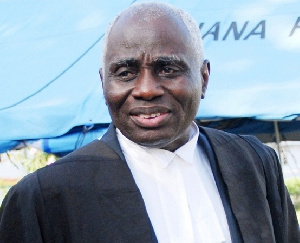Renowned private legal practitioner, Tsatsu Tsikata, has stated that the Supreme Court’s ruling on the issue of vacant parliamentary seats does not include any specific directive to Speaker of Parliament Alban Bagbin regarding whether the seats have been vacated or not.
Speaking on TV3’s Agenda program on Monday, November 18, Mr. Tsikata said his position was based on the court’s ultimate conclusion, which he argued lacked instructions to the Speaker.
“In the ultimate conclusion of the court, there are no directions to the Speaker in respect of whether the seats have been vacated or not,” he stated.
Similarly, Thaddeus Sory, legal counsel for the Speaker, also maintained that the Supreme Court’s decision overturning Speaker Bagbin’s declaration of four parliamentary seats as vacant did not impose any direct order on the Speaker.
In its judgment delivered on Thursday, November 14, the Supreme Court clarified that a Member of Parliament (MP) is deemed to have vacated their seat only if they switch political affiliation while retaining their position in Parliament. The ruling emphasized that Articles 97(1)(g) and (h) of the Constitution apply exclusively to the current parliamentary term and not to future re-election scenarios.
Mr. Sory, in a Facebook post on the same day, reiterated that the court’s ruling did not mandate the MPs in question to be allowed back into Parliament or require the Speaker to recognize them.
“There is no order saying that the MPs must be allowed in Parliament or directing that Parliament recognize the said MPs as earlier ordered by the Court contained in the majority decision,” he stated, adding that “the order staying execution of the Speaker’s ruling is now spent.”
However, private legal practitioner Kofi Bentil challenged this interpretation, arguing that Supreme Court rulings are binding and must be adhered to, regardless of disagreements.
“Please do not be confused by anyone! The suggestion that the Supreme Court issued no order is an extreme exertion to invent a non-existent technicality. When the Supreme Court rules and makes declarations, you simply comply, even if you don’t agree,” Mr. Bentil asserted.
He emphasized that respect for the rule of law requires obedience to the court’s decisions, cautioning against attempts to reinterpret clear judicial pronouncements.









